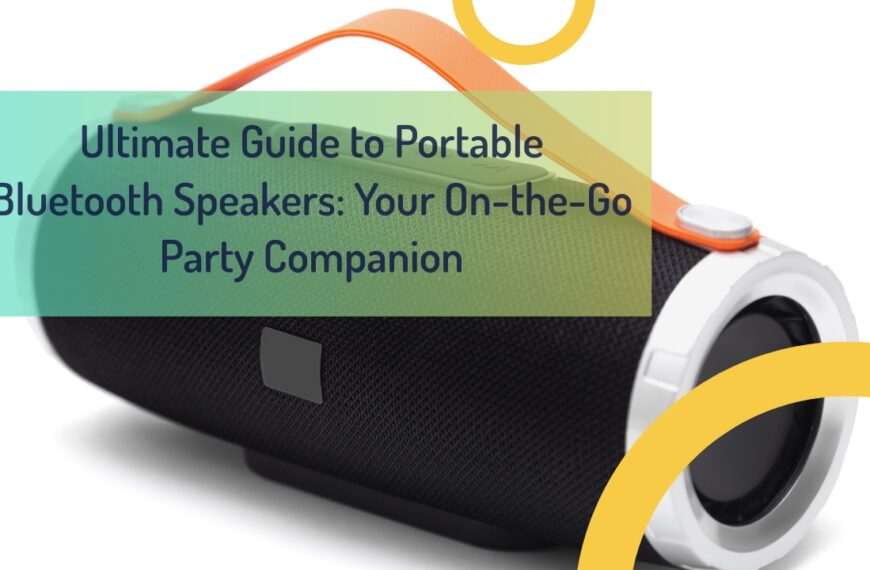Quantum sensors are revolutionizing the field of navigation technologies, offering unprecedented accuracy and precision in various industries. Navigation technologies play a crucial role in sectors such as aerospace, marine, and land-based navigation, enabling efficient and safe transportation. Quantum sensors utilize the principles of quantum mechanics to measure physical quantities with exceptional sensitivity and accuracy. These sensors have the potential to transform the way we navigate and explore the world around us.
Key Takeaways
- Quantum sensors and navigation technologies are becoming increasingly important in various industries.
- Quantum sensing is based on the principles of quantum mechanics and can provide more accurate and precise measurements than traditional sensors.
- Quantum sensors have several advantages over traditional navigation systems, including higher sensitivity, faster response times, and better resistance to environmental factors.
- Quantum sensors can be used in a variety of applications, such as precision positioning and tracking, autonomous navigation, and mapping and surveying.
- Despite their potential benefits, quantum sensors still face challenges and limitations, such as high costs and technical complexity. However, ongoing research and development could lead to further improvements and wider adoption in the future.
Understanding the Basics of Quantum Sensing
To understand quantum sensing, it is essential to grasp the fundamentals of quantum mechanics. Quantum mechanics is a branch of physics that describes the behavior of matter and energy at the smallest scales. It introduces concepts such as superposition and entanglement, which are key to quantum sensing.
Quantum sensors come in various forms, each designed to measure specific physical quantities. Some common types of quantum sensors include atomic clocks, magnetometers, and gyroscopes. Atomic clocks use the vibrations of atoms to measure time with extraordinary precision. Magnetometers detect magnetic fields with high sensitivity, making them useful in applications such as geophysics and medical imaging. Gyroscopes measure angular velocity and are crucial for navigation systems in aircraft and spacecraft.
Advantages of Quantum Sensors over Traditional Navigation Systems
Quantum sensors offer several advantages over traditional navigation systems, making them highly desirable in various industries. One significant advantage is their higher accuracy and precision. Traditional navigation systems rely on classical physics principles, which have inherent limitations in terms of accuracy. Quantum sensors, on the other hand, exploit quantum phenomena to achieve unprecedented levels of precision.
Another advantage of quantum sensors is their ability to operate in challenging environments. Traditional navigation systems often struggle in extreme conditions such as deep underwater or outer space. Quantum sensors, however, can function reliably in these environments due to their inherent robustness.
Additionally, quantum sensors have lower power consumption compared to traditional navigation systems. This is particularly important in applications where power efficiency is crucial, such as in portable devices or autonomous vehicles. The lower power consumption of quantum sensors allows for longer battery life and reduced energy consumption.
Applications of Quantum Sensors in Navigation Technologies
The applications of quantum sensors in navigation technologies are vast and diverse. In the aerospace and aviation industry, quantum sensors can enhance navigation systems in aircraft and spacecraft, improving safety and efficiency. They can provide more accurate positioning and tracking, enabling precise landing and navigation in challenging conditions.
In marine navigation, quantum sensors can revolutionize underwater exploration and mapping. They can improve the accuracy of sonar systems, allowing for better detection of underwater objects and terrain. Quantum sensors can also enhance navigation systems in ships and submarines, enabling safer and more efficient maritime transportation.
In land-based navigation, quantum sensors can be used in autonomous vehicles to improve positioning and tracking. They can enable precise localization, allowing autonomous vehicles to navigate complex urban environments with greater accuracy and safety. Quantum sensors can also enhance mapping and surveying applications on land, providing more detailed and accurate maps for various industries.
Quantum Sensors for Precision Positioning and Tracking
Quantum sensors have the potential to revolutionize precision positioning and tracking in various industries. By leveraging the principles of quantum mechanics, these sensors can provide highly accurate and reliable measurements of position and velocity.
Industries that benefit from precise positioning and tracking include transportation, logistics, and telecommunications. In transportation, precise positioning is crucial for autonomous vehicles to navigate safely and efficiently. Logistics companies can benefit from accurate tracking of goods throughout the supply chain, ensuring timely delivery and reducing losses. Telecommunications companies can use quantum sensors to improve the accuracy of location-based services, enhancing user experience.
Quantum Sensors for Enhanced Navigation in Challenging Environments

One of the key advantages of quantum sensors is their ability to operate in challenging environments where traditional navigation systems may fail. For example, in aerospace and aviation, quantum sensors can provide reliable navigation in outer space, where GPS signals are weak or unavailable. They can also enhance navigation in aircraft during extreme weather conditions or in areas with poor satellite coverage.
In marine navigation, quantum sensors can improve underwater exploration and mapping. They can operate in deep-sea environments where traditional sonar systems may struggle due to high pressure and low visibility. Quantum sensors can also enhance navigation in submarines, allowing for precise positioning and tracking even in underwater environments.
In land-based navigation, quantum sensors can improve navigation in urban environments with tall buildings and other obstacles that may obstruct GPS signals. They can provide accurate positioning for autonomous vehicles, enabling them to navigate complex city streets with greater safety and efficiency. Quantum sensors can also enhance navigation in underground tunnels or mines, where GPS signals are not available.
Quantum Sensors for Improved Autonomous Navigation
Autonomous navigation is a rapidly growing field, with applications ranging from self-driving cars to unmanned aerial vehicles (UAVs). Quantum sensors have the potential to significantly improve autonomous navigation by providing precise positioning and tracking capabilities.
In the automotive industry, quantum sensors can enhance the safety and efficiency of self-driving cars. They can enable precise localization, allowing autonomous vehicles to navigate complex road networks with greater accuracy. Quantum sensors can also improve obstacle detection and avoidance, reducing the risk of accidents.
In the UAV industry, quantum sensors can enhance the autonomy and reliability of unmanned aerial vehicles. They can provide accurate positioning and tracking, enabling UAVs to perform tasks such as aerial mapping, surveillance, and delivery with higher precision. Quantum sensors can also improve collision avoidance systems in UAVs, enhancing their safety during flight.
Quantum Sensors for Better Mapping and Surveying
Mapping and surveying applications rely on accurate measurements of the Earth’s surface to create detailed maps and models. Quantum sensors have the potential to improve mapping and surveying by providing more precise and reliable measurements.
In the field of geodesy, quantum sensors can enhance the accuracy of measurements used to determine the Earth’s shape and size. They can improve the precision of geodetic surveys, enabling more accurate mapping of the Earth’s surface. Quantum sensors can also enhance the accuracy of elevation models, allowing for better flood modeling and urban planning.
In the construction industry, quantum sensors can improve the accuracy of building surveys and site measurements. They can provide precise positioning and tracking, enabling more accurate placement of structures and infrastructure. Quantum sensors can also enhance the efficiency of construction processes by providing real-time feedback on the progress and quality of construction projects.
Challenges and Limitations of Quantum Sensors in Navigation Technologies
While quantum sensors offer significant advantages over traditional navigation systems, they also face several challenges and limitations. One major challenge is the sensitivity of quantum sensors to external disturbances. Quantum sensors are highly sensitive to environmental factors such as temperature, magnetic fields, and vibrations. These disturbances can introduce errors in the measurements, reducing the accuracy and reliability of the sensors.
Another limitation is the complexity and cost associated with quantum sensors. Quantum sensing technologies are still in their early stages of development, and their implementation requires specialized knowledge and expertise. The high cost of developing and manufacturing quantum sensors can be a barrier to widespread adoption in certain industries.
Furthermore, quantum sensors require sophisticated calibration procedures to ensure accurate measurements. Calibration is essential to account for any drift or bias in the sensor’s output over time. This calibration process can be time-consuming and may require specialized equipment and expertise.
Future Prospects of Quantum Sensors in Navigation Technologies
Despite the challenges and limitations, the future prospects of quantum sensors in navigation technologies are promising. Ongoing research and development efforts are focused on addressing the challenges associated with quantum sensing, such as improving sensor robustness and reducing sensitivity to external disturbances.
The potential impact of quantum sensors on various industries is significant. In aerospace and aviation, quantum sensors can enhance safety and efficiency in air travel, enabling more precise navigation and landing. In marine navigation, quantum sensors can revolutionize underwater exploration and mapping, opening up new possibilities for scientific research and resource exploration. In land-based navigation, quantum sensors can improve the accuracy and reliability of autonomous vehicles, transforming transportation systems.
Quantum sensors are poised to revolutionize navigation technologies across various industries. Their higher accuracy and precision, ability to operate in challenging environments, and lower power consumption make them highly desirable for applications such as aerospace, marine, and land-based navigation. Quantum sensors have the potential to improve precision positioning and tracking, enhance navigation in challenging environments, enable better autonomous navigation, and improve mapping and surveying. While there are challenges and limitations associated with quantum sensors, ongoing research and development efforts are expected to overcome these obstacles. The future prospects of quantum sensors in navigation technologies are promising, with the potential to transform industries and society as a whole. Further research and development in this field are crucial to unlock the full potential of quantum sensors in navigation technologies.
Quantum Sensors Promise to Improve Navigation Technologies is an intriguing article that explores the potential of quantum sensors in revolutionizing navigation systems. To delve deeper into this fascinating topic, you can check out the related article on Tablet Jankari’s magazine section. This article provides valuable insights into the advancements and applications of quantum sensors in various industries. Discover how these cutting-edge technologies are poised to enhance navigation accuracy and efficiency by clicking here.
FAQs
What are quantum sensors?
Quantum sensors are devices that use quantum mechanics principles to measure physical quantities such as magnetic fields, gravity, and temperature with high precision and accuracy.
How do quantum sensors work?
Quantum sensors work by exploiting the quantum properties of matter, such as the spin of electrons or the energy levels of atoms, to detect and measure physical quantities. They use techniques such as quantum entanglement, quantum interference, and quantum tunneling to achieve high sensitivity and resolution.
What are the advantages of quantum sensors?
Quantum sensors offer several advantages over classical sensors, including higher precision, greater sensitivity, and lower noise. They can also operate at lower temperatures and in harsher environments, making them suitable for a wide range of applications.
What are some applications of quantum sensors?
Quantum sensors have many potential applications, including in navigation, geophysics, medical imaging, and defense. They can be used to improve the accuracy of GPS systems, detect underground resources, diagnose diseases, and detect stealth aircraft.
How can quantum sensors improve navigation technologies?
Quantum sensors can improve navigation technologies by providing more accurate and reliable measurements of position, velocity, and orientation. They can also operate in environments where GPS signals are weak or unavailable, such as indoors or underground. This can benefit a wide range of industries, including aviation, maritime, and transportation.



